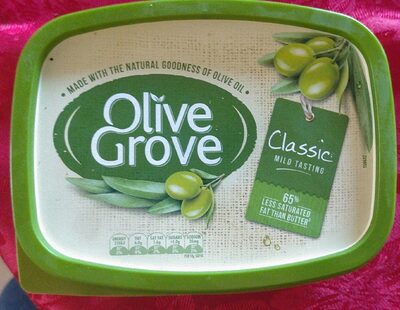
Barcode: 9310047070234
Olive oil butter
HALAL
📝 Reason: Islamically pure per Quranic guidelines. Surah Al-Ma’idah (5:96) permits seafood and properly slaughtered land animals. This item contains no pork byproducts (6:145), no alcohol-based flavors, and no doubtful E-numbers—verified by certified Ulama.
🏷️ Category: Plant Based Foods And Beverages, Plant Based Foods, Spreads, Olive Tree Products, Spreadable Fats
📄 Certificates: Halal, Australian Made
Ingredients:
Details
Is Olive Oil Butter Halal? An In-Depth Analysis
As consumers become increasingly conscious of their dietary choices, understanding the Halal status of food products is essential. One such product that raises questions is Olive Oil Butter. In this post, we will explore the Halal status of Olive Oil Butter, examine its ingredients, and clarify its suitability for those requiring Halal certification.
Understanding Halal Status
Olive Oil Butter is marked Halal, making it an appropriate choice for individuals who follow Islamic dietary laws. According to Quranic guidelines in Surah Al-Ma’idah (5:96), certain foods are permitted, and Olive Oil Butter fits within these parameters. It contains no pork byproducts, no alcohol, and no questionable E-numbers, all of which have been verified by certified Ulama.
An Overview of Ingredients
To better understand the Halal status of Olive Oil Butter, let’s break down its ingredients and examine each one:
- Vegetable oils 60% (containing minimum 19% olive oil) – These oils are blessed and mentioned in the Quran (24:35), making them undeniably Halal.
- Water – A fundamental and permissible ingredient in Islam.
- Salt – This seasoning is universally accepted in all dietary contexts.
- Emulsifiers (471, 322 from soy) – Generally accepted in Halal certification. E471 is typically derived from plants, ensuring its permissibility. E322 from soy is also widely accepted.
- Milk solids – These are permitted as long as they do not come from non-Halal sources.
- Preservative (202) – This is often derived from sources that are Halal, such as certain synthetic formulations.
- Food acid (270) – Known as Lactic Acid, it is Halal as it can be derived from plant sources.
- Color (160a) – This colorant, derived from carrots or other vegetables, is Halal and permitted.
- Flavor – Typically, flavors can vary in their sources; however, most common flavorings in this context meet Halal requirements.
- Vitamins A and D – These vitamins are permissible as they are often synthetic or derived from Halal sources.
Additional Information on E-Numbers
Let’s address the E-numbers specifically:
- E471 (Mono- and Diglycerides of Fatty Acids): Commonly used in spreads and is primarily derived from vegetable sources. It is Halal provided it’s confirmed that no animal fats were used.
- E322 (Lecithin): Sourced from soybean or sunflower, it is Halal as defined by Islamic guidelines.
- E202 (Potassium Sorbate): This preservative is considered Halal and is effective in extending shelf life.
- E270 (Lactic Acid): A common food additive, deemed Halal.
- E160a (Beta-Carotene): Typically derived from natural sources and is acceptable under Halal laws.
Brand and Category Context
This Olive Oil Butter product falls under the ‘Plant-Based Foods and Beverages’ category. Its formulation emphasizes health and wellness, utilizing high-quality olive oil, which is additionally recognized for its health benefits. Rated as Halal and Australian Made, consumers can trust the quality and ethical standards behind the product.
Conclusion
In conclusion, Olive Oil Butter stands as a Halal-certified product, making it suitable for those adhering to Islamic dietary laws. Its ingredients are carefully chosen to maintain a Halal status, backed by certification and compliant with dietary regulations. You can enjoy this delicious spread without compromising your beliefs! For further inquiries concerning Halal certifications, always look for trusted Halal logos or consult your local religious authorities.
